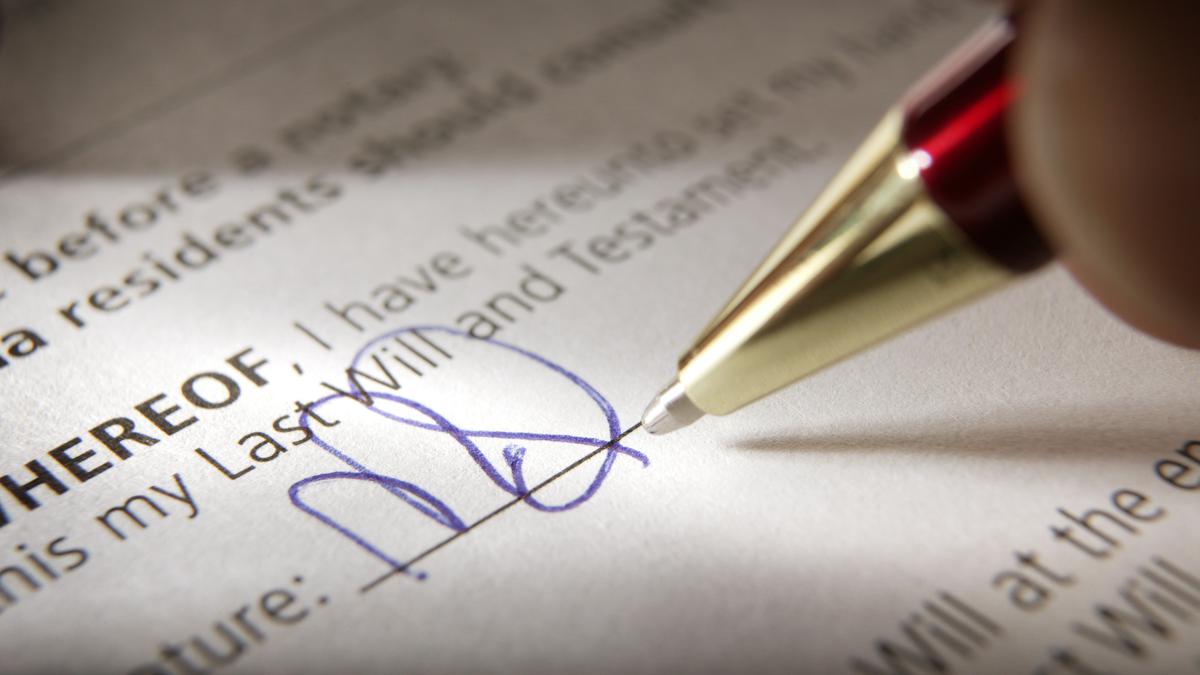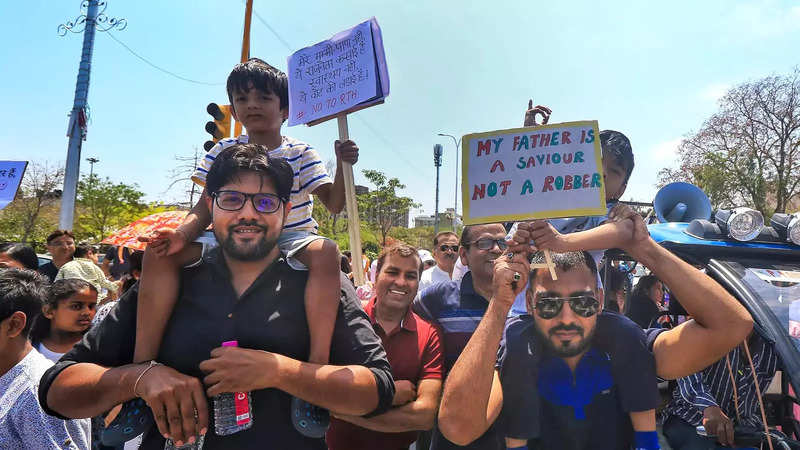
Locked Down or Left Out?
Covid-19 and protecting the rights of the vulnerable in India
The complete ‘lockdown’ effected in India to curb the spread of Covid-19 has brought the inequities in society to the fore, and especially the plight of the most vulnerable. Human beings have an inherent right to health. Although this principle is embodied both in the Universal Declaration of Human Rights (UDHR) and the Indian Constitution, a ‘national public health law’ guaranteeing such a right does not exist in India.
Article 25 of the UDHR recognises that every person has the right to a standard of living, which enables them to maintain their health and well-being – this includes access to food, medical care, the necessary social services, and, in particular, the right to security when in a state of vulnerability, such as childhood, motherhood, old-age, or disability. Similarly, Article 21 of the Constitution of India protects the individual’s right to life and personal liberty, and by extension, the fundamental right to health, and its determinants.
Unfortunately, in the absence of a comprehensive public health law, these rights are not guaranteed explicitly to each individual or citizen, whether under ordinary or extraordinary circumstances – such as a pandemic. However, India does provide certain protections to vulnerable groups during situations of risk through other statutory measures.
This piece looks at these statutory measures and their effectiveness through the lens of the ongoing public health emergency.
Statutory protections to vulnerable groups during situations of risk
The United Nations Convention on the Rights of Persons with Disabilities (UNCRPD) requires that all necessary measures be taken to ensure the protection and safety of persons with disabilities in situations of risk, including humanitarian emergencies and natural disasters.
India, being a signatory to the UNCRPD, recognises, under the Rights of Persons with Disabilities Act, 2016 (‘RPWD Act’) the right to equal protection to persons with disabilities during situations of risk, humanitarian emergencies and natural disasters. It imposes obligations on the national and state disaster management authorities to ensure the inclusion of persons with disabilities in its disaster management measures.
As a result, the National Disaster Management Authority issued the National Disaster Management Guidelines on Disability Inclusive Disaster Risk Reduction (‘DiDRR’) in September, 2019.The DiDRR provides disability inclusive actions to be undertaken by concerned stakeholders during different phases of the Disaster Risk Reduction process. However, considering that these guidelines contemplated a phase-wise implementation of the Plan between two and five years from the date of issuance, these may not take effect during the present crisis.
Similarly, the Maintenance and Welfare of Parents and Senior Citizens Act, 2007, was enacted to protect the rights of the elderly who are unable to provide for themselves. Among other things, it specifically requires the government to ensure that government hospitals provide funded hospital beds to accommodate senior citizens, as well as separate queues and earmarked facilities for geriatric patients in every district hospital. The proper implementation of these provisions is the need of the hour during a public health emergency.
Locked down or left out?
In the ongoing battle against the Covid-19 pandemic – the central government, as of 24th March, 2020, has notified a complete lock-down of the entire country – i.e. all economic and social activity that cannot be conducted from an individual’s personal lodging has come to a halt (apart from essential services). Thus, the fundamental rights of individuals in India, to work, move around, and associate freely with others have been subordinated to the public interest. These rights are being restricted in the interest of controlling and managing the outbreak.
For the general population, such stringent measures place a strain on resources and general well-being. However, when weighed against the risks of widespread infection, the balance may be found to be in favour of such restrictions. The same standards may not apply in the case of vulnerable sections of the population, such as the elderly and persons with disabilities.
India has a significant number and proportion of vulnerable groups in its population, including 104 million people over the age of 60 (the ‘elderly’), and about 26 million persons with disabilities (as per the 2011 census). These groups face high incidences of poverty, lack of education, elder-abuse, barriers to information and healthcare, systemic discrimination, and a general lack of attention to their specific needs.
The complete ‘lockdown’ currently in force, implies that access to transport, public recreational areas, and crucially – income for daily wage earners is cut off, and consequently, their access to medical supplies and healthcare is crippled. While essential services have been stated to be excluded, i.e. to continue in operation during the ‘lockdown’, the elderly and persons with disabilities will find it particularly difficult, and in some cases, impossible to access these services in light of their various physical, intellectual, educational, and economic limitations.
Quarantine facilities have been found to be ill equipped to accommodate elderly persons and persons with disabilities. It is also not easy for them to follow the stringent personal hygiene directions required in order to avoid a Covid-19 infection, especially if they rely on physical assistance from caregivers for daily activities.
Thus, many of the steps taken in an effort to preserve the health of the public, and presumably that of people who are most susceptible to succumb to a Covid-19 infection (the elderly, the immunocompromised, and those with underlying health conditions) may actually end up having the opposite effect, given the complete lockdown of socio-economic activity, and quarantine in inadequately equipped facilities. This may, in fact, amount to an infringement on the fundamental human right to health of vulnerable groups, unless appropriate measures are taken to mitigate these adverse outcomes.
Humanity and equity in a time of crisis – way forward
When certain sections of the population are disproportionately affected by a particular policy, it is incumbent on the government to take measures to address the specific needs of these groups, and protect their rights through specific interventions. For, while it “is legitimate to take costs into consideration in determining whether a particular accommodation is warranted; indeed, the goal of maximizing utility demands that such assessments be made”; however, “despite the importance of conserving limited resources, the ethical principle of equity may sometimes justify providing greater resources to persons who have greater needs.” – ‘Guidance for Managing Ethical Issues in Infectious Disease Outbreaks’, World Health Organization (2016).
Apart from the monetary assistance that has been promised, and the general guidelines and advisories issued by the government so far, specific steps must be taken (at the central, state, and local levels) to ease the burden of the ‘lockdown’ and other pandemic mitigation measures, on the vulnerable. These could be along the lines of:
• facilitating access to the monetary assistance that has been announced by the government, by vulnerable groups who face either physical or intellectual barriers in this regard;
• implementing the action plans suggested by the DiDRR;
• implementation by state and district authorities, of the guidelines issued by Department of Empowerment of Persons with Disabilities to take measures for the protection, safety, and assistance of persons with disabilities in their daily living activities during the ‘lockdown’ period. This includes making COVID19 related information available in accessible formats, ensuring their access to essential services, and exempting their caregivers from the general restrictions to ensure that they can carry out their functions;
• the District Disaster Management Authorities taking suitable measures to inform persons with disabilities in their district of any situations of risk as mandated under the RPWD Act;
• assisting vulnerable groups with access to healthcare – by way of dedicated transport made available to those without access to private transport, and provision of appropriate facilities in quarantine and medical centres;
• ensuring that modes of communication take into the account limited literacy, reduced mental capacity, and specific communication needs, of various sections of the population – for example, by creating a separate helpline for elderly persons, and deputing government representatives at the local and community level, to engage with vulnerable sections, and ensure that reliable information reaches them in language that they understand;
• community engagement – seeking feedback from the most vulnerable groups, about their needs and the difficulties faced by them.
The government could partner with and provide monetary and logistical support to NGOs which are already working on these and other areas, as well as private organisations and healthcare facilities, ensuring that available resources are deployed to assist the vulnerable in this difficult time.
Views are personal.




